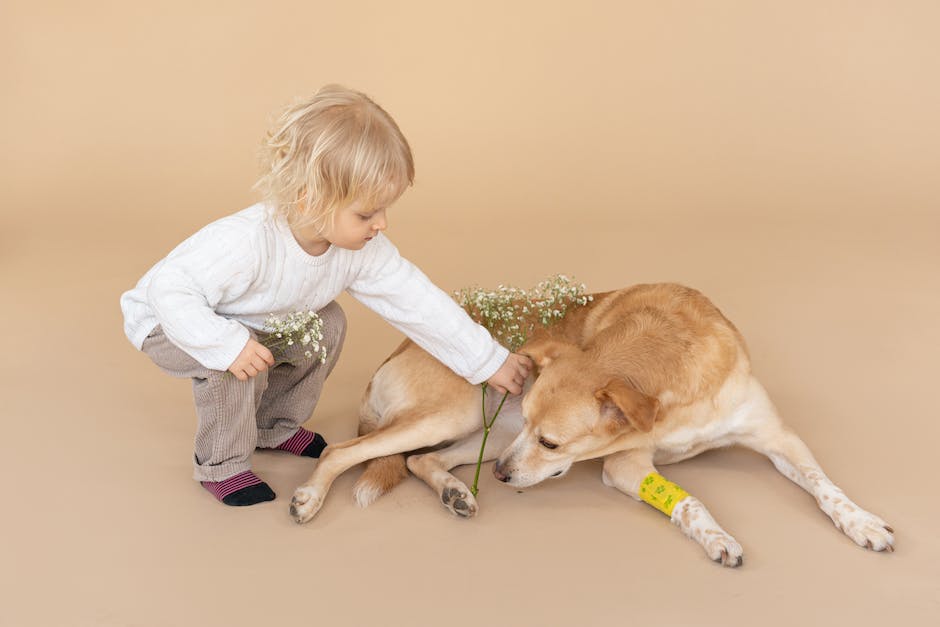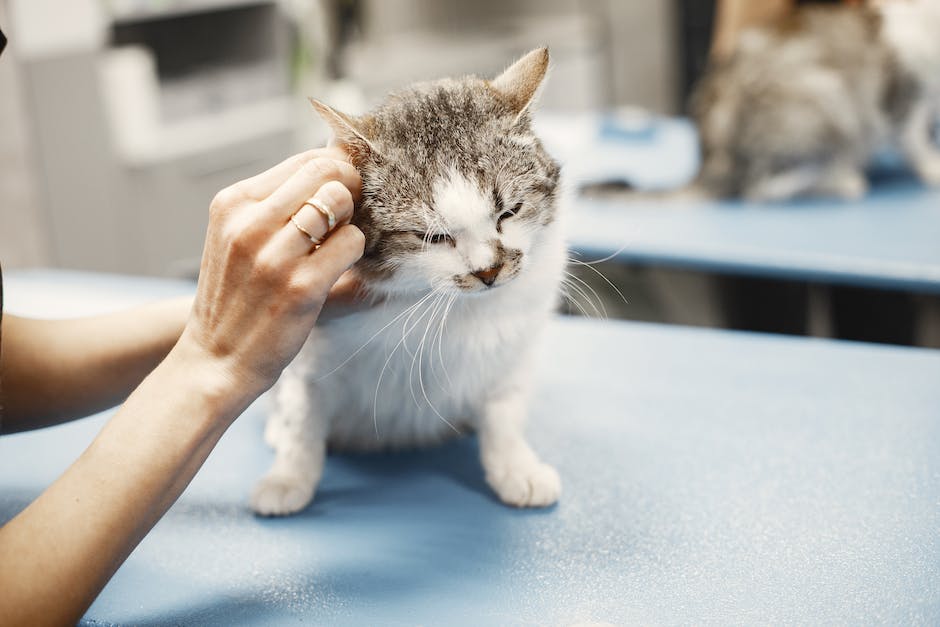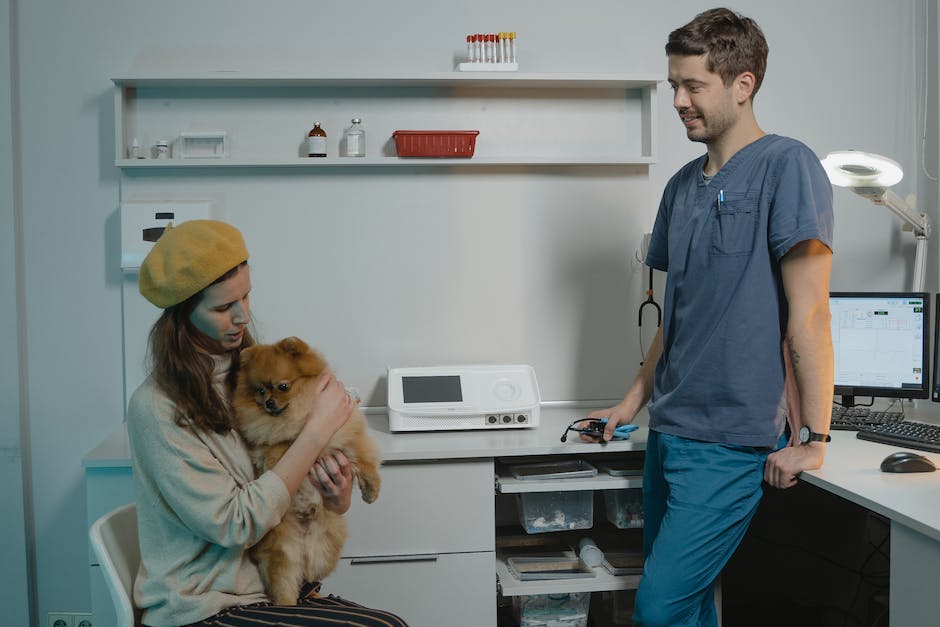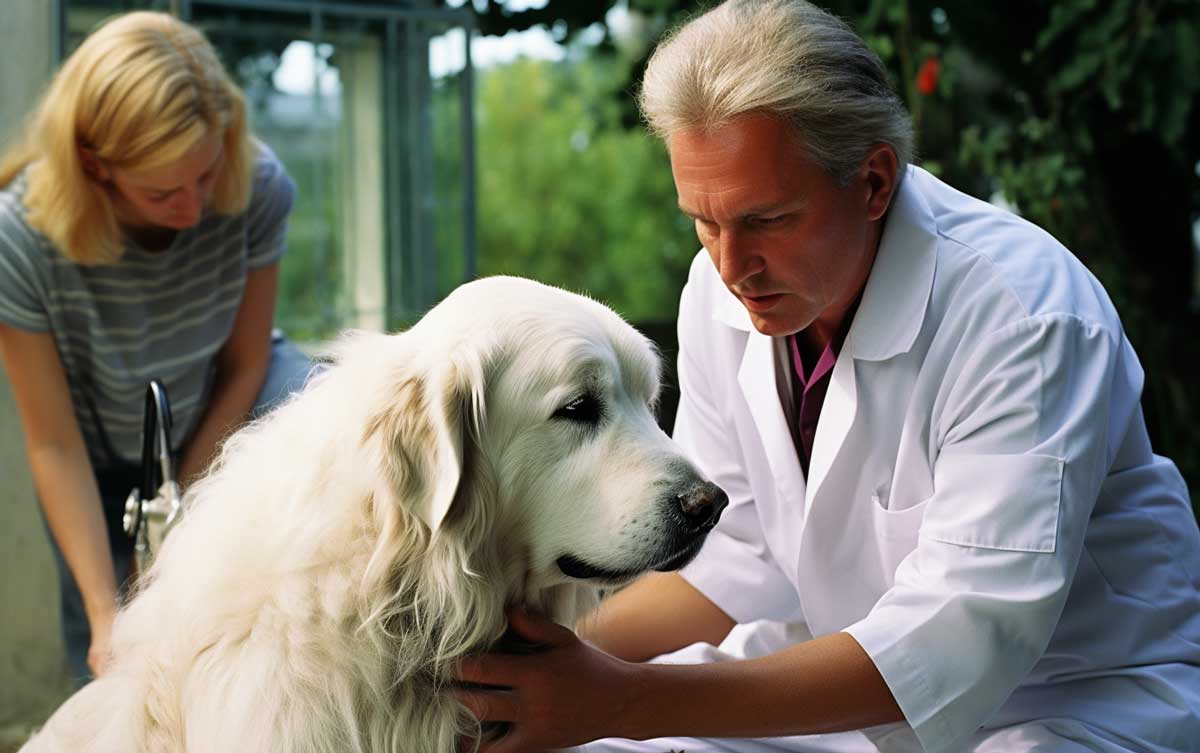When you decide to adopt a pet, it's essential to consider the potential veterinary costs that may arise over the years. From basic care to emergency treatments, vet bills can quickly accumulate. This can pose a serious financial problem for pet owners. Low-income households need financial assistance to meet the medical and veterinary needs of their pets.
In this article, we'll explore the various types of veterinary care and their associated costs, providing you with a comprehensive understanding of what to expect and how to get help with vet bills.
Types Of Veterinary Care And Associated Costs
Veterinary care can be categorized into several types, each with its varying costs:
Basic Care
The cost of a vet visit can vary widely based on several factors. According to the American Veterinary Medical Association (AVMA), the price of veterinary services has been increasing steadily. With pet ownership on the rise, veterinary care is in higher demand than ever before. A significant portion of pet owners now view their pets as family members, leading to more frequent and comprehensive vet visits.
A Breakdown of Standard Veterinary Expenses
-
Routine checkups: $50 to $250
-
Spay/neuter: $160 to $220
-
Vaccines per shot: $15 to $28
-
Physical exams: $45 to $55
-
Fecal exam: $25 to $45
-
Heartworm test: $45 to $50
-
Dental cleaning: $70 to $400
-
Allergy testing: $195 to $300
-
Geriatric screening: $85 to $110
Non-Basic Care
Surgeries and Unexpected Vet Costs:
-
Bloodwork: $80 to $200
-
X-rays: $150 to $250
-
Ultrasounds: $300 to $600
-
Short hospitalizations: $600 to $1,700
-
Long hospitalizations: $1,500 to $3,500
-
Wound treatment: $800 to $2,500
-
Emergency surgery: $1,500 to $5000
-
Oxygen therapy: $500 to $3000
Emergency Care
Emergencies can arise unexpectedly, and the associated costs can be significantly higher than regular care. An emergency visit may involve:
-
ER exam: $75 - $125
-
IV catheter: $60 - $75
-
IV fluids: $50 - $75
-
Blood tests (basic): $75 - $150
-
Urine tests (basic): $25 - $50
-
X-rays (basic): $75 - $250
-
Blood pressure measurement: $25 - $75
-
Pain medication: $40 - $80
-
Hospitalization / Vet Tech Monitoring: $50 - $200
Chronic Conditions And Cancer Treatments
Chronic conditions and diseases such as heart, kidney, liver disease, cancer, or arthritis can lead to higher veterinary costs. Dogs, for instance, get cancer at roughly the same rate as humans. Regular check-ups and early detection can help manage these conditions and potentially reduce long-term costs.
Prevention And Wellness Care
Preventative care is crucial for maintaining your pet's health. Regular check-ups, vaccinations, and wellness exams can help detect potential issues early on, leading to more effective treatments and potentially lower costs in the long run.
How To Cover Veterinary Costs Without Depleting Your Savings
One effective way to manage veterinary costs is through pet insurance. With the right policy, you can get reimbursed for a significant portion of your expenses, ensuring that you don't have to compromise on your pet's health due to financial constraints.
Financial Assistance For Vet Bills
When faced with unexpected veterinary expenses, many pet owners find themselves in a challenging financial situation. Fortunately, several organizations and platforms offer financial assistance to help cover these costs. Let's delve into some of these options:
Care Credit
Care Credit is not a charity but a line of credit specifically designed for medical expenses, including veterinary care. Pet owners can apply for this credit, which is interest-free as long as it's paid off within six months. Many veterinary offices across the U.S. accept Care Credit, making it a widely accessible option for those in need.
Other Financial Institutions
Apart from Care Credit, there are other financial institutions and platforms like Pawp that provide benefits for dog owners. For a subscription fee, Pawp offers unlimited opportunities to speak to a veterinarian via video call or text. Additionally, subscribers can receive up to $3,000 in emergency veterinary fee coverage per year, usable at any veterinarian of their choice.
Charities And Nonprofits
-
Petsmart Charities: They offer many low-cost spay and neuter clinics and administer the Improving Access to Veterinary Care grant. Pet owners can apply for this grant during specific periods.
-
RedRover Relief: This organization provides urgent care grants, typically around $200, for pet owners facing veterinary bills. Applicants must meet specific guidelines and submit their application before incurring treatment expenses.
-
Brown Dog Foundation, Inc: A public charity that provides funds to cover veterinary expenses. They assist with pending bills but not ones already paid by the owner.
-
Actors And Others For Animals: A non-profit offering spay, neuter assistance, and partial veterinary bill coverage for those who meet certain criteria.
-
The Pet Fund: This non-profit assists with the cost of non-basic, non-urgent care, such as cancer treatments and heart disease.
-
Bow Wow Buddies Foundation: A non-profit offering veterinary expense relief for pets in serious need, especially for emergency situations.
-
Help-A-Pet: Provides financial assistance for canine injury or illness treatment. Applicants must meet specific income criteria.
-
Harley’s Hope: Offers financial aid for treatment costs of pets with a fair prognosis. Applicants must first apply to Care Credit and be denied before being considered.
-
Veterinary Care Charitable Fund: A donation-funded charity that covers vet costs for pet owners in need. The vet must apply for aid on behalf of the pet owner.
-
My Pet Child: Helps pair struggling pet owners with resources that may provide financial assistance. They also offer $200 financial assistance grants for specific types of care.
Crowdfunding Platforms
Crowdfunding platforms like GoFundMe, Fundly, Petfundr, Waggle, and Plumfund have become popular means for pet owners to raise funds for veterinary expenses. By sharing their pet's story and medical needs, owners can garner support from friends, family, and even strangers willing to help.
Local Specialists And Veterinarians
Always communicate openly with your veterinarian about your financial situation. Some vet offices might offer payment plans or reduced rates for those in need. Additionally, low-cost clinics can provide essential services like health checkups, vaccinations, and spay/neuter surgeries at a fraction of the usual cost.
Pet Insurance To Help Pay Vet Bills
Pet insurance has become an increasingly popular solution for pet owners looking to manage the costs of veterinary care. With the rising expenses associated with pet health, having an insurance plan can provide peace of mind and financial relief in times of need. Let's delve deeper into the world of pet insurance.
Plans Offered By Insurers
Some of the insurance plans pet owners can take advantage of are:
Paw Protect:
-
Why We Like It: Paw Protect stands out as a top choice for pet insurance that pays vets directly, eliminating the hassle of out-of-pocket expenses. Unlike most providers that require upfront payment followed by reimbursement, Paw Protect offers a unique $2,000 interest-free line of credit for vet bills. They provide an accident & illness plan and an optional Wellness add-on. Additionally, they offer 24/7 telemedicine coverage and discounts for multiple pets or military members.
-
Coverage Highlights: The plan has a two-day waiting period for accidents and a 14-day period for illnesses. There's also a six-month waiting period for canine orthopedic conditions, which can be reduced with an orthopedic exam and waiver process. Coverage includes chronic conditions, prescription medication, boarding, and microchipping.
Healthy Paws:
-
Why We Like It: While Healthy Paws does offer direct vet payment, it operates more traditionally. Pet owners pay the vet and then submit a claim for reimbursement. For direct vet payment, you must contact Healthy Paws before the vet appointment for approval. It's an excellent option for anticipated claims exceeding $2,000. However, approval doesn't guarantee claim coverage. They offer a wide range of coverage options and deductibles, making it customizable for individual needs.
-
Coverage Highlights: The plan has a 15-day waiting period for accidents and illnesses and a 12-month period for conditions related to hip dysplasia for pets under six years. Coverage includes surgery, alternative therapies, cancer treatment, dental disease, breed-specific issues, and behavioral issues.
Benefits Of Pet Insurance
-
Financial Security: Pet insurance provides a safety net against high veterinary costs, ensuring you don't have to compromise on your pet's health due to financial constraints.
-
Peace Of Mind: Knowing that a significant portion of the vet bill will be covered allows pet owners to make decisions based on what's best for their pet rather than what they can afford at the moment.
-
Access To The Best Care: With insurance, pet owners can access a broader range of treatments, including advanced procedures and surgeries that might otherwise be out of reach financially.
-
Budget Management: Regular monthly premiums can be more manageable than unexpected lump-sum vet bills, helping pet owners budget more effectively.
-
Customizable Plans: Many insurers offer a range of plans with varying levels of coverage, deductibles, and premiums, allowing pet owners to choose a plan that fits their needs and budget.
Tips For Managing Pet Medical Expenses Without Insurance Or Financial Assistance
For many pet owners, the rising costs of veterinary care can be a significant concern, especially if they don't have pet insurance or access to financial assistance. However, there are several strategies that can help manage these expenses without compromising the health and well-being of your beloved pets.
Make Preventive Care A Priority
-
Practice Portion Control And Serve Quality Food: Ensure you're feeding your pet the right amount by using a measuring cup at meal times. Opt for pet food that lists real meat as the first ingredient, not corn meal or wheat. This can help maintain a healthy weight for your pet, reducing the risk of obesity-related health issues. Look for store coupons or contact pet food manufacturers for discounts. Estimated annual savings: $200.
-
Regular Grooming: Extend the time between professional grooming appointments by taking care of basic grooming needs at home. Use grooming scissors to trim around your pet's face and dilute shampoo for baths. Estimated savings: $120.
-
Ear Care: Regularly clean your pet’s ears with a homemade solution of three parts rubbing alcohol to one part white vinegar. This can help prevent ear infections, especially in breeds prone to them. Estimated savings: $120.
-
Dental Care: Brushing your pet's teeth at least twice a week using pet-specific toothpaste and brushes can prevent dental issues. This is a cost-effective alternative to professional dental cleanings that can range between $150 and $400.
Consider Alternatives To Veterinary Services
-
Homemade Treats: Instead of buying expensive treats, consider making healthy homemade treats in large batches and storing the surplus in the freezer. Estimated savings: $100.
-
Discount Stores: Purchase pet essentials like litter, leashes, bowls, beds, and toys from major discount chains instead of specialized pet stores. Estimated savings: $150.
-
DIY Cat Trees: Instead of purchasing expensive cat furniture, consider building your own using scrap wood, carpet remnants, and sisal rope.
-
Pet Alliances: Collaborate with fellow pet owners. Share premium food bought in bulk, serve as each other's pet sitter, and trade services. For instance, if you have a specific skill, offer it in exchange for veterinary services.
Negotiate Payment Plans With Your Veterinarian
-
Open Communication: Always be upfront with your veterinarian about your financial situation. Many veterinarians understand the challenges pet owners face and might be willing to work with you to establish a payment plan or prioritize treatments based on your budget.
-
Vaccination Packages: Discuss with your vet about the essential vaccinations your pet needs. Opt for 3-year vaccinations when possible, instead of annual ones, to save costs. Estimated savings: $150.
-
Twice-A-Year Wellness Exams: Regular check-ups can help detect potential health issues early on, which can be more cost-effective in the long run. Early detection can lead to more straightforward treatments and prevent the development of more severe, costly conditions.
Get Help With Vet Bills
Owning a pet is a rewarding experience that comes with its set of responsibilities, including ensuring their health and well-being. As veterinary costs continue to rise, it's essential for pet owners to be informed and proactive in managing these expenses. Whether it's through insurance, financial assistance, or practical cost-saving measures, there are numerous avenues to explore for help with vet bills. By prioritizing preventive care, considering alternative solutions, and staying informed, pet owners can navigate the challenges of veterinary expenses with confidence, ensuring their furry companions receive the love and care they deserve.
Find out how to get government financial assistance for seniors by checking out our detailed guide. Visit Gov Relations and browse through the available resources to learn more.







